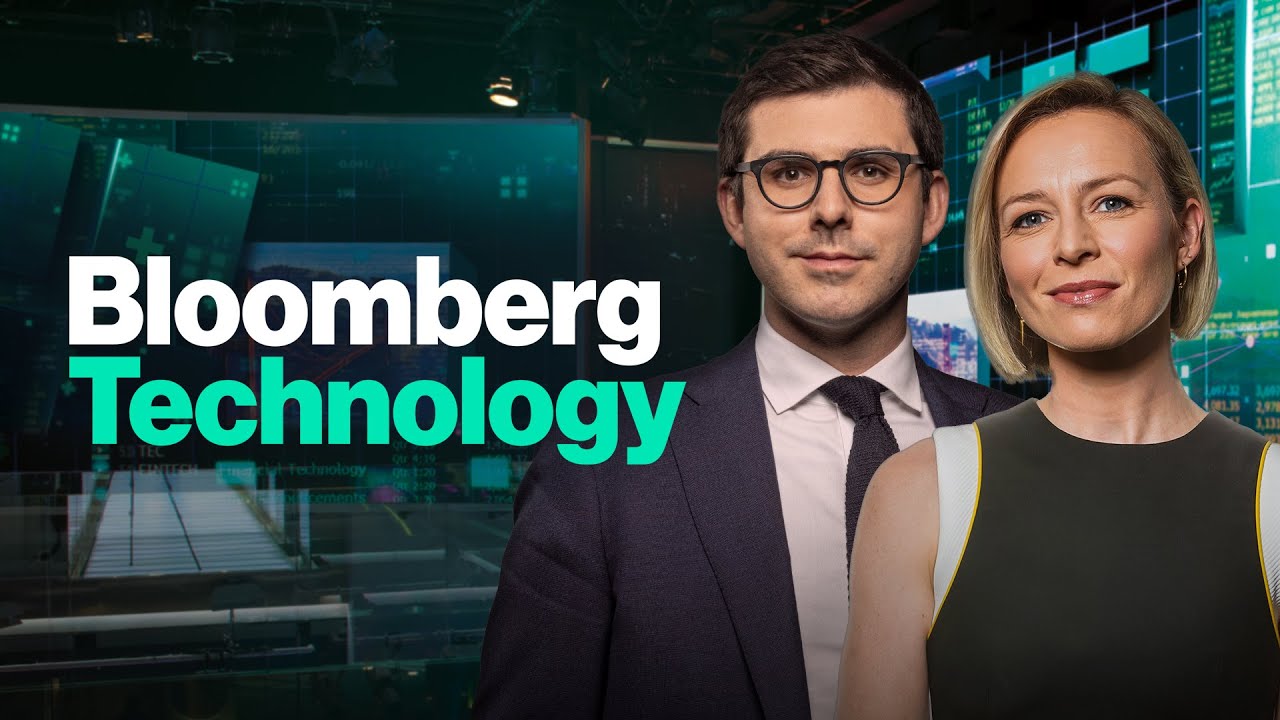The video discusses OpenAI’s global expansion efforts, including a major data center in the UAE and investments in AI infrastructure to enhance innovation and geopolitical competitiveness, alongside U.S. infrastructure development plans. It also covers shifts in the electric vehicle market with China’s BYD overtaking Tesla in Europe, U.S. healthcare tech growth, and advancements in digital finance through tokenized assets and blockchain technology.
The Bloomberg Technology segment covers a wide range of recent developments in the tech industry, starting with OpenAI’s significant investments and expansion efforts. OpenAI has announced a $6.5 billion funding round involving Apple veteran Jony Ive, who is collaborating with OpenAI to develop AI hardware and infrastructure. OpenAI is also working on building a major data center in the United Arab Emirates as part of its international Stargate infrastructure expansion, aiming to leverage global markets and foster democratic AI development. This move signifies OpenAI’s strategic push to establish AI infrastructure beyond the U.S., with a focus on fostering innovation and investment in various countries.
The discussion highlights the partnership between OpenAI and the UAE, emphasizing the country’s ambitious plans to develop a 5-gigawatt data center, which will consume a significant portion of the nation’s energy resources. The initiative is seen as a nation-building effort, akin to the advent of electricity, with AI infrastructure expected to impact sectors like transportation, healthcare, and education. OpenAI’s leadership believes that the U.S. and China are the primary global players capable of building AI at scale, and the UAE’s involvement demonstrates a broader geopolitical competition for AI dominance. The company aims to bring AI to entire nations, making it accessible for citizens and integrating it into national development strategies.
In addition to AI infrastructure, the segment discusses the broader geopolitical and economic implications, including U.S. competitiveness and infrastructure investments. OpenAI’s Chief Global Affairs Officer explains that the U.S. is well-positioned to lead in AI innovation, but infrastructure development is crucial to maintaining this edge. The U.S. is actively working on expanding its data center capabilities, with plans to build over a gigawatt of energy capacity in the U.S., particularly in Texas. The goal is to ensure the U.S. remains at the forefront of AI technology by investing in large-scale infrastructure, which is viewed as essential for economic and technological leadership in the AI age.
The segment also touches on the competitive landscape in the electric vehicle market, noting that China’s BYD has overtaken Tesla in Europe, marking a significant shift in the EV industry. This development comes shortly after Elon Musk acknowledged challenges in the European market, with BYD’s rise highlighting increasing competition from Chinese automakers. Meanwhile, U.S.-based companies like Hinge Health went public, raising over $400 million. Hinge Health’s focus on digital physical therapy exemplifies the growing trend of healthcare innovation through technology, aiming to improve access, reduce costs, and streamline care delivery in a large and expanding market.
Finally, the discussion shifts to regulatory and financial innovations, including tokenized assets and the evolving landscape of digital finance. Kraken’s co-CEO discusses the company’s efforts to tokenize securities and enable trading of U.S. stocks like Tesla and Nvidia in a digital form outside the U.S., emphasizing the importance of regulatory clarity. The segment underscores the potential for blockchain technology to transform traditional finance by enabling faster settlements and broader access to global liquidity. Overall, the program highlights the rapid technological advancements, geopolitical competition, and regulatory challenges shaping the future of AI, finance, and infrastructure on a global scale.
